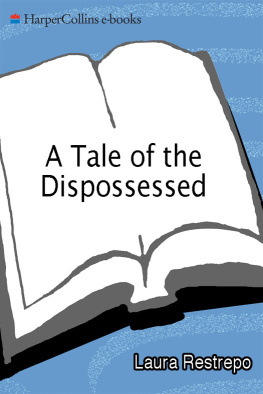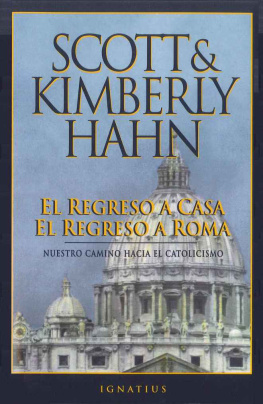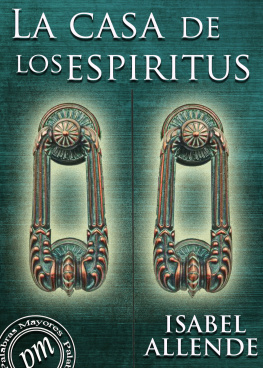
For my agent,
Thomas Colchie,
and his wife, Elaine,
dearest friends.

Strange things happen to people who are fleeing from terror (... ); some are cruel, and others are so beautiful that faith is renewed.
—J OHN S TEINBECK
Contents

A s I believe that writing is to a large extent a collective effort and that each individual voice should find its generational juncture, I have wished this book to be a bridge between my books and those of Alfredo Molano, who is also a Colombian, fiftyish, and witness of the same wars and chronicler of the same struggles. With his permission, I have inserted within my text a dozen lines he has authored, which his readers will surely recognize.

H ow can I tell him that he is never going to find her, after he has been searching for her all his life?
He told me that he finds pain in the air, that his blood is boiling, and that he is lying on a bed of nails because he lost the woman he loves at one of the turns in the road, and there is no map to tell him where to find her. He searches the whole landscape for her, never allowing himself a moment of respite or of forgiveness, though he doesn’t realize that she is only to be found within himself, ensconced in his feverishness, present in every object he touches, and staring at him through the eyes of anyone who approaches him.
“The world tastes of her,” he has confessed to me. “My mind does not know any other destination, it goes straight to her.”
If I could talk to him without breaking his heart, there is something I would tell him, in hopes it could stop his sleepless nights and wrongheaded search for a shadow. I would repeat this to him: “Your Matilde Lina is in limbo, the dwelling place of those who are neither dead nor alive.”
But that would be like severing the roots of the tree that supports him. Besides, why do it if he is not going to believe me. He inhabits the dream limbo of the woman he’s after, and like her, he has adjusted to that nebulous, intermediate condition. At this shelter I have met many who were stigmatized in the same way: those who lose themselves in the very search for their lost ones. But I have seen no one more enslaved by the tyranny of that search.
“She’s going on with her life, like me,” he stubbornly claims when I dare insinuate the opposite.
I have come to believe that this woman is like a guardian angel who doesn’t allow him to escape from this obsessive quest. She keeps herself ten steps ahead of him, close enough for him to see her but impossibly beyond his grasp, always those ten steps that he can never bridge, and that make him follow her to the end of his days.
He came to this refuge for weary travelers the way he goes everywhere: asking for her. He wanted to know if we had seen a woman here by the name of Matilde Lina, a laundress who got lost during the upheavals of the war. She was originally from Sasaima but lived right on the borderline between Tolima and Huila, in a village devastated by violence. I told him that we had no information about her and offered him shelter instead: a bed, a roof over his head, hot meals, and the intangible protection of this place. But he persisted in his obsession with the willing blindness of those who hope beyond hope, then asked me to check, one by one, all the names in the register.
“Come do it yourself,” I told him, because I know very well how relentless this urging is, and I sat him down with the list of those who had stopped at this shelter, day after day, in the midst of their journey of displacement.
I insisted that he stay with us at least a couple of nights so he could unload the mountain of fatigue weighing on his shoulders. That is what I told him, but what I wanted to say was: “Stay here, at least until I get used to the idea of not seeing you anymore.” And by then I was already feeling, inexplicably, a gnawing desire to have him close to me.
He thanked me for the hospitality and agreed to stay the night, but for that night only. It was then that I asked him his name.
“My name is Three Sevens,” he answered.
“That must be a nickname. Could you tell me your name? Any name, it doesn’t matter; I need a name, something that I can enter in the register.”
“Excuse me, but Three Sevens is my name; I don’t know of any other.”
“Pedro, Juan, any name; please give me a name,” I insisted, claiming a bureaucratic motive, though I was really being pressed by the dark conviction that all earth-shaking events in one’s life crop up just like this, suddenly, and without a name. To know the name of this stranger in front of me was the only way—at least that’s how I felt then—to counteract the power that he had already begun to exert over me at that moment. Why? I did not know, because he was not very different from so many others who land here at the farthest corner of exile, enveloped in sickly auras, often dragging with them an old fatigue, and trying to look forward while their sight is fixed on what was left behind. Still, there was something in him that engaged me deeply. Perhaps it was the tenacity of a survivor that I perceived in his look, or his serene voice, or his dark mass of hair; or maybe it was his big bear gestures: slow and strikingly solemn. But more than anything, I felt a sort of predestination. The kind of predestination that lurks behind my ultimate and unadmitted objectives for traveling to these lands. Haven’t I really come here in search of all that this man embodies? At first I didn’t know this, since I didn’t know what I was looking for. But now I am quite certain of it and can even risk a definition: It is all that is other, that is different from me and my world; something that gains strength precisely where my world gets weaker; that brings panic and alarming voices where my world relies on certainties; that signals vitality where mine dissolves in disbelief; that seems real in opposition to what is based on words or, conversely, that becomes phantasmagoric for its lack of expression: the underside of the tapestry, where the knots of reality are revealed. Everything, finally, that I could not have imagined, had I stayed in my world.
I don’t believe in so-called love at first sight, at least that which is understood as an unmistakable intuition signaling beforehand that something will soon come to bind you: that sudden bolt that forces you to hunch your shoulders and squint your eyes to protect you from being overtaken by something earth-shattering, which for some mysterious reason has more to do with your future than with your present. I remember clearly that the moment I saw Three Sevens coming in, even before knowing his name, or lack of it, I asked myself the same question that I would later ask so many times: Would his coming be my salvation or my downfall? I sensed there would be no halfway terms here. Three Sevens? 7—7—7? I did not know what to write.
“How do you sign your name, in letters or in numbers?”
“I seldom sign anything, miss, because I don’t trust papers.”
“All right, then, it’s Three Sevens,” I told him, and also myself, accepting the inevitable. “Please come with me now, Mr. Three Sevens; a hearty bowl of soup won’t do you any harm.”
The anxiety burning inside him, bigger than himself, did not let him eat, but that did not surprise me. Everyone who comes up to this place is driven by the same intensity. It did surprise me not to be able to look into his soul. In spite of the fact that in this work one learns to discern people’s deep intentions, there was something in him that did not fit any pattern. I don’t know whether it was the way he was dressed, definitely as an outsider, or his attempt at a disguise that didn’t quite work, or if what aroused my suspicion was that unwieldy pack he was lugging around and which he never left out of sight, as if it contained some precious or dangerous cargo.
Página siguiente













